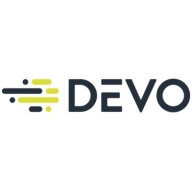

Devo and Mezmo both compete in the data analytics and logging domain. Devo takes the lead in ease of deployment and customer service, while Mezmo leads with its advanced analytics.
Features: Devo offers robust logging capabilities, seamless integration options, and reliable data insights. Mezmo provides advanced analytics, visualization tools, and deeper user insights.
Room for Improvement: Devo requires more customization options, enhanced scalability, and improved user interface design. Mezmo needs better documentation, improved onboarding processes, and integration flexibility.
Ease of Deployment and Customer Service: Devo is known for its easy deployment and prompt customer service. Mezmo, though not as straightforward in deployment, compensates with a robust support team addressing user concerns effectively.
Pricing and ROI: Devo presents competitive pricing with quicker ROI, being more preferred by cost-conscious buyers. Mezmo, higher in cost, is perceived for long-term value, especially for those prioritizing advanced analytics.

Devo is the only cloud-native logging and security analytics platform that releases the full potential of all your data to empower bold, confident action when it matters most. Only the Devo platform delivers the powerful combination of real-time visibility, high-performance analytics, scalability, multitenancy, and low TCO crucial for monitoring and securing business operations as enterprises accelerate their shift to the cloud.
Today’s enterprises must manage a massive amount of machine data. They require a platform that enables engineering teams to deliberately route and store structured and unstructured data for different teams with unique use cases. Legacy platforms weren’t made for this moment.
Mezmo, formerly LogDNA, lets organizations ingest, process, route, analyze, and store all of their log data. Purpose-built for modern engineering teams—including developers, SREs, IT Operations, and Security Engineers—the Mezmo platform is trusted by thousands of companies for SaaS, cloud, and hybrid applications.
We monitor all Log Management reviews to prevent fraudulent reviews and keep review quality high. We do not post reviews by company employees or direct competitors. We validate each review for authenticity via cross-reference with LinkedIn, and personal follow-up with the reviewer when necessary.